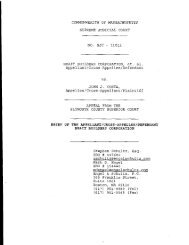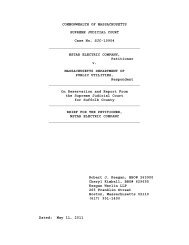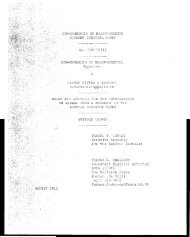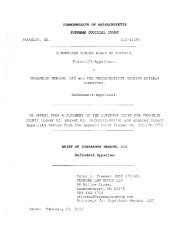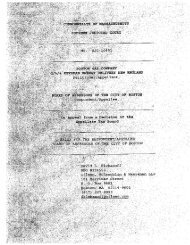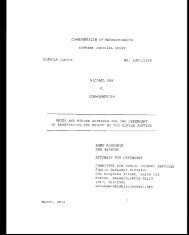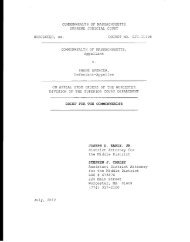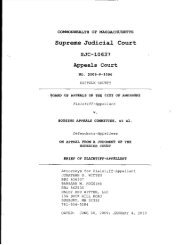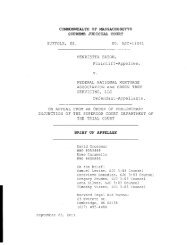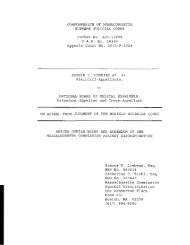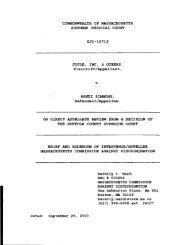463 Mass. 353 - Appellee Commonwealth Brief - Mass Cases
463 Mass. 353 - Appellee Commonwealth Brief - Mass Cases
463 Mass. 353 - Appellee Commonwealth Brief - Mass Cases
Create successful ePaper yourself
Turn your PDF publications into a flip-book with our unique Google optimized e-Paper software.
marijuana, as admitted by the defendant and<br />
corroborated by the circumstantial evidence, was<br />
overwhelming. Based upon this kind of evidence, it is<br />
beyond a reasonable doubt that the certificates of<br />
analysis had no "effect on the jury" and did not<br />
contribute "to the verdicts." Vasquez, 456 <strong>Mass</strong>. at<br />
360. Their impact on the fact finder was only<br />
cumulative of other powerful evidence.<br />
Accordingly, the admission of the certificates of<br />
analysis was harmless beyond a reasonable doubt.<br />
III. THERE WAS NO SUBSTANTIAL RISK OF A<br />
MISCARRIAGE OF JUSTICE IN THE EVIDENCE<br />
CONCERNING CALLS PLACED TO RAYMOND<br />
MENDES'S CELL PHONE.<br />
Raymond Mendes argues (although Ronald Mendes does<br />
not advance this argument) that Detective Hyde's<br />
testimony concerning calls placed to the cellular<br />
telephones was inadmissible hearsay (RayM.Br. 16-25)<br />
and violated his rights of confrontation (RayM.Br. 25-<br />
28). Rarmond Mendes further argues that Hyde's<br />
listening to the incoming phone calls violated G. L. c.<br />
272, § 99, and created a substantial risk of a<br />
miscarriage of justice. (See RayM.Br. 28-32.)<br />
These arguments of Raymond Mendes are all<br />
meritless. The testimony was not offered for the truth<br />
44



